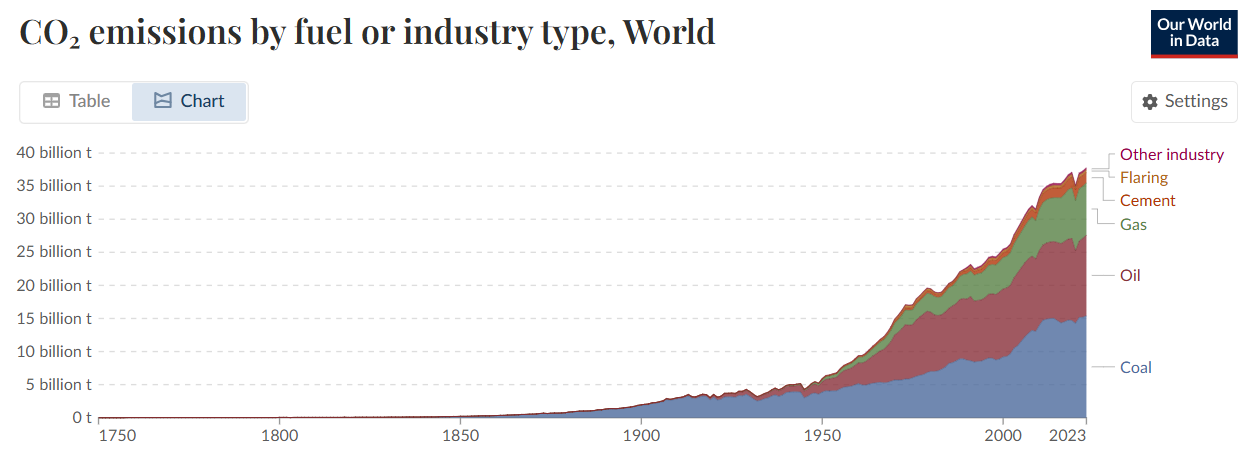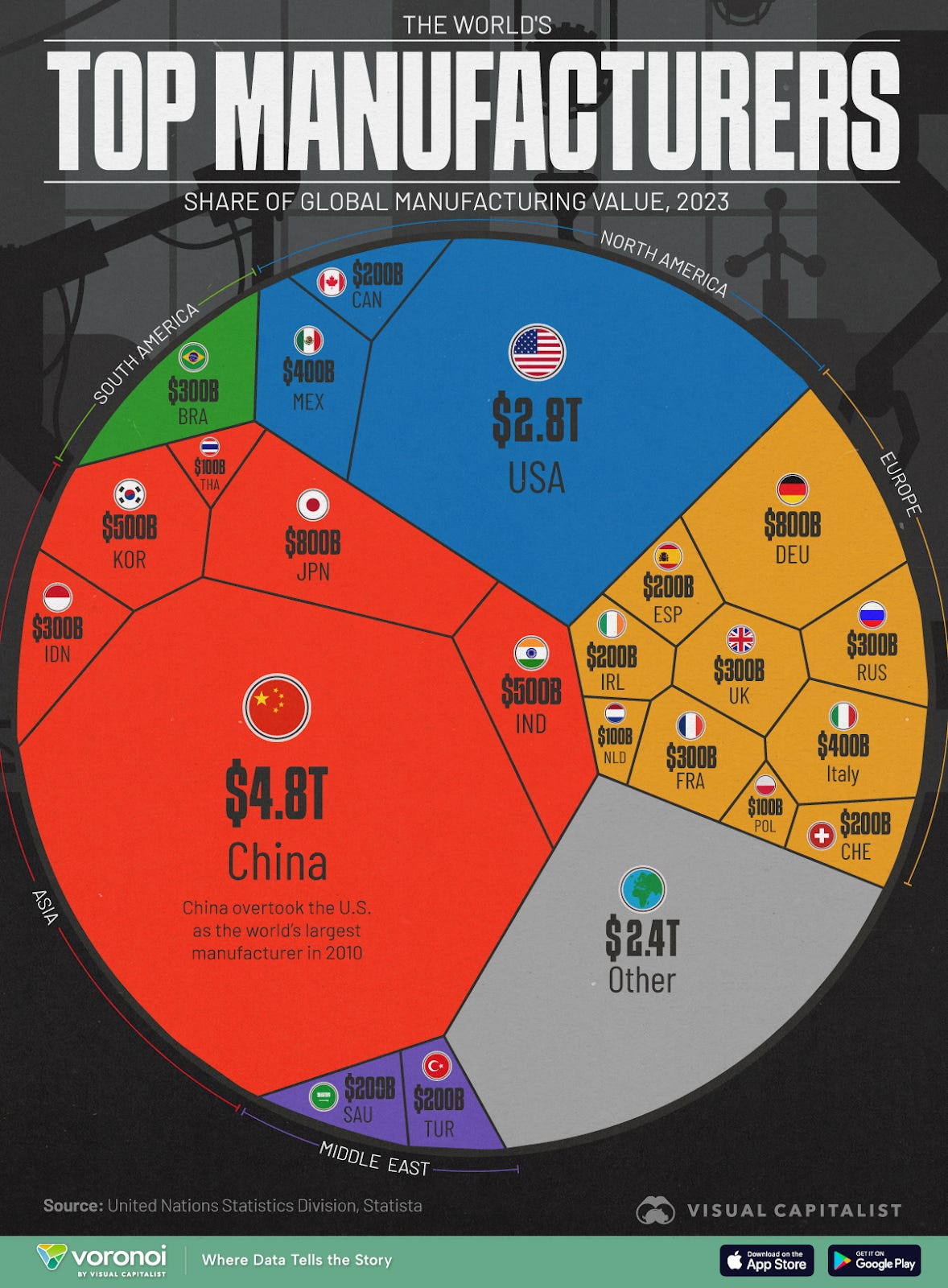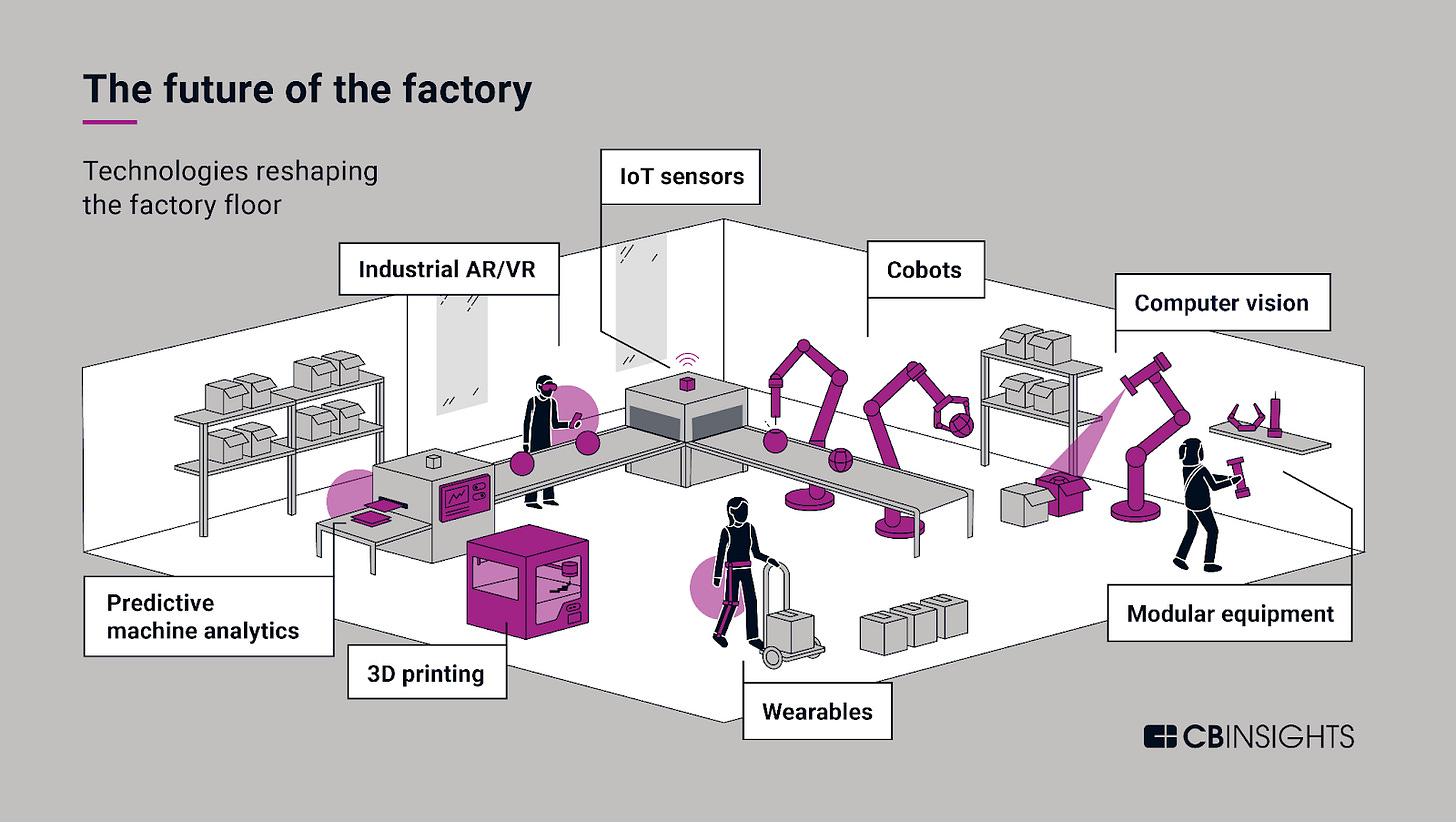Industrials as the New Web Stack
Intelligence, sovereignty, and circularity are becoming the new defaults. The winners will rebuild how the world makes things.
This is a newsletter exploring how AI, climate change, and geopolitics are reshaping the foundational layers of human and planetary health.
We live in a time when biology is (re)programmable, nature is intervenable, and national borders are increasingly fluid. 1000bai examines this transformation through the lens of founders, funders, researchers, and thinkers who are rebuilding our deepest infrastructures: how we heal, grow, and survive.
Each edition will offer insight into what’s being rewritten and why it matters, with rounded analysis, provocative ideas, and curated signals from the frontier of living systems.
No noise. Just signal.
—Koshu (Okinawa) & Ander (Basque Country) of Lifetime Ventures.
The Problem
We’ve built trillion-dollar industrial systems optimized for throughput. Manufacturing, logistics, materials, and energy conversion (sectors that shape 30–40% of global GDP) are still running on brittle, analog, and linear foundations:
Over 20% of global CO₂ emissions come from heavy industry (steel, cement, chemicals).
$3.4T in productivity is lost every year due to unplanned downtime.
90% of operational decisions are still made using deterministic logic (simple rule-based) systems built before the internet.
Supply chains span 190,000+ multinational suppliers, but less than 15% offer real-time visibility.
These are not just inefficiencies, they are compounding systemic fragilities. Long lead times, dirty production, zero adaptability. The result is a planetary-scale system that’s extractive, opaque, and shock-prone.
And yet: this system has been treated as background infrastructure, too big to rethink, too messy to innovate, too old to disrupt.
For startups, this is one of the greatest opportunities. The industrial stack is the last great frontier that remains largely unsoftwared thus incumbents do not hold structural advantage like in software.
Why Now?
A triple shock is making re-architecture not just possible, but inevitable.
1. AI: Industrial environments are becoming agent-readable
SymphonyAI, Uptake, and C3.ai use foundation models to cut asset downtime by 30–50%.
xAI and open-source agents now parse PLC logs, MES data, and camera feeds to orchestrate real-world actions.
2. Climate: Carbon is becoming a cost function
The EU CBAM will tax embedded emissions in all imports from 2026.
The “green premium” for low-carbon materials (steel, cement) has fallen below $50/ton, down from over $100 in 2020.
Carbon is no longer just a compliance line. It's a pricing input that startups can turn into arbitrage.
3. Geopolitics: Supply chains are now sovereign infrastructure
China controls 60%+ of rare earth refining, 80% of solar-grade polysilicon.
Battery plants, chip fabs, and clean metals are being reshored under national security mandates.
The Future
The new industrial stack will be data-native, carbon-aware, and autonomously orchestrated. It will run on real-time emissions data, live simulations, and agent-based coordination.
Foundational layers include:
Intelligent Matter: Tunable proteins, programmable polymers, carbon-negative building blocks that replace the traditional processing raw materials
Clean Heat & Chemistry: Electrification of production, cement kilns and steel onshore.
Intelligent Production: Robotic microfactories and multi-agent orchestration.
Supply Chain OS: Digital twins of global networks, live audits, geopolitic-aware routing.
By 2030, expect:
50% of industrial assets will run on AI-native controls.
Every Tier 1 OEM will operate a live, multi-agent model of its supply chain.
This is infrastructure, not interface. The wedge isn’t UX, but the fundamental intelligence, embedded directly into atoms and flows.
Startups that win the next industrial era won’t just build software for factories.
They’ll reprogram civilization’s means of production.
Rabbit Hole
📚 Read: How the World Really Works (Vaclav Smil), Making the Modern World (Vaclav Smil), The New Industrial Revolution (Peter Marsh).
🗞 Click: MIT Industrial Performance Center, Lowercarbon Industrials Memo, Material Innovation Initiative.
🎧 Listen: Hardware to Save a Planet (MCJ Collective), The Built Environment (A/O PropTech), Manufacturing Happy Hour.
🎫 Attend: Formnext (Frankfurt), Advanced Manufacturing Expo (US), BIEMH (Bilbao).






